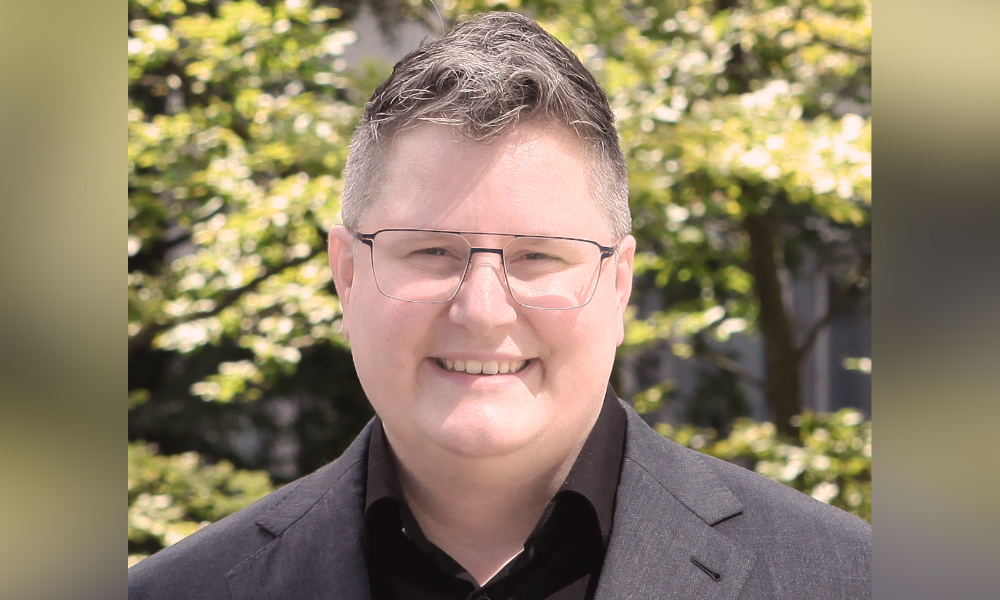
CBA BC Branch is also involved in constitutional challenge of BC's new Legal Professions Act

Amid a backlash to policies aimed at enhancing inclusivity for trans and gender-diverse people, Lee Nevens will be president of the Canadian Bar Association BC Branch (CBABC) for the 2024-2025 term, the first trans lawyer to serve in the role and CBA’s first non-binary branch president.
Based in Vancouver, Lee Nevens is senior counsel in civil litigation with the federal government. Throughout the years, Nevens has worked with and chaired the CBABC’s sexual and gender diversity alliance. Nationally, they chair the CBA’s trans and gender diversity advisory group.
When Nevens joined the board of the CBABC five years ago, the profession and society, more broadly, were becoming more open and safer for trans and non-binary people, they say. There was excitement and positivity to learn about diverse identities.
“People were open to, for example, introducing pronouns, and they were curious and happy to help create that change and to make sure they hired diverse workforces and firms and were respectful of all litigants in the system, regardless of identity.
“The past couple of years, there's been a significant backlash against trans people and gender diverse people,” says Nevens. “It's actually a good time to come into this role. It's a little daunting to be very publicly out within the legal profession.”
They say the most potent example of the backlash was the protests across Canada last September against trans-inclusive school policies.
Saskatchewan recently passed a law requiring parental consent for children under 16 to change names or pronouns at school. UR Pride, an LGBTQ+ advocacy organization at the University of Regina, has challenged the law, arguing that it denies gender-diverse youth an educational environment free from discrimination. The Saskatchewan government has invoked the notwithstanding clause. Similar laws concerning pronoun use at school have been enacted in Alberta and New Brunswick.
There are not many elders in the trans community, says Nevens. “In the past, the option for openly trans people was to either put yourself in the closet or end up in the grave. So, the closet or the grave were our choices. Slowly, over the past couple of decades, we've had a third option, which is living openly and authentically.
“What I fear with the backlash that we've seen is that people are trying to shut down the third option and send us back to the closet or the grave.”
As those in society responsible for upholding human rights principles, they say it is critical that lawyers stand up for access to justice for trans people, inclusion in the profession, and representation in the profession. More than just announcing pronouns, they say lawyers are also responsible for being aware of the substantial legal issues faced by trans clients.
Nevens also assumes the role as the BC government overhauls the regulation of the legal profession in BC. The new Legal Professions Act brings lawyers, notaries and paralegals under one regulator. The new act reconfigures the law society’s board of directors, with lawyers now only holding nine of the 17 director positions. Critics have blasted the change as undermining the independence of the legal profession. The Legal Professions Act received Royal Assent in May, and the Law Society of British Columbia is challenging the law’s constitutionality.
“Right now, our membership is still concerned about the changes reflected in the act… and we're preparing to engage with the law society's litigation,” says Nevens.
They say the case is expected to be heard in court in late 2024 or early 2025.
The CBABC will share its Agenda for Justice 2024 in September. With an upcoming provincial election, it is an opportunity for the CBABC to share recommendations for change “based on the front-line experiences” of members and clients, says Nevens.
“Lee is known for their positive role in helping our profession learn the value of equity, diversity and inclusion,” said CBABC CEO Kerry Simmons. “Their experience will assist CBABC in advocating on behalf of our members.”